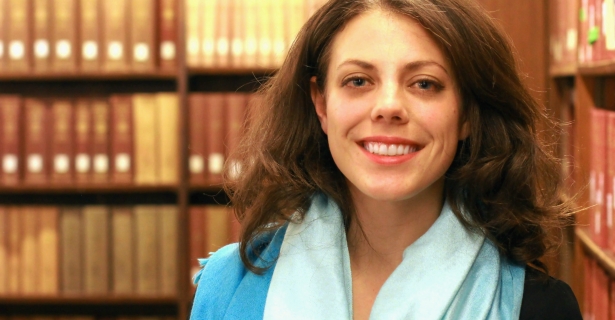The Fletcher School, MALD 2017
Of the many things I had in mind for the summer in between my first and second years of graduate school, being a 27 year old intern was not one of them. And yet, now halfway through my 10 week stint at the Pentagon, I can confidently say these past few weeks on the Syria Desk have been some of the most professionally fulfilling of my short career.
A baptism-by-fire assignment if there ever was one, life on the Syria Desk has already left its share of bumps and bruises. At any time, the team is constantly churning out informational briefs, action memos, meeting read-outs, public affairs talking points, responses to Congressional inquiries, and more, about the ever-changing security environment in Syria and along its borders. The sheer amount of information which passes through my inbox each day is staggering – and I’m not even privy to all of the classified systems.
Not that I’m any stranger to navigating a deluge of information. Before coming to Tufts, I served as the press secretary for the Washington Institute for Near East Policy, a non-partisan research organization which focuses on U.S. policy in the Middle East. As the primary point of engagement with the press, I spoke with reporters and producers at all hours of the day about everything from the challenges for the fledgling Tunisian democracy to nuclear negotiations with Iran. What I’ve quickly found, however, is there is a remarkable difference in the tone and tenor of an environment which seeks to analyze policy and one which makes policy.
A former Institute colleague once told me, “when you’re out of government, you have all the time in the world to think about policy – but when you’re in government, your job is to keep the lights on.” What he failed to mention, was the not so-insignificant task of finding the right light switch. In addition to coordinating with our colleagues at the Joint Staff, CENTCOM, and other DoD entities, we also work with the intelligence community, State, USAID, and the National Security Council on everything from securing humanitarian corridors to vetting, training, and equipping a moderate Syrian opposition.
For all of its cluttered bureaucracy, my summer at the Pentagon reminds me why I went back to school for my master’s degree in policy. Despite laying down a clear “red line” against the use of chemical weapons in Syria, in late August 2013 Barack Obama retreated from his promise to use military force against the Assad regime, deciding at the last moment to not attack. While there was no way to know then that Syria would become one of the greatest humanitarian disasters of the twenty first century -- costing hundreds of thousands of lives, turning millions into refugees, and helping to give rise to the barbarically cruel Islamic State – I was still shocked by the president’s sudden about-face decision. In the week leading up to the decision not to strike, I had spent most of my waking hours on the phone with members of the media laying out all the reasons the United States should honor its “red line” in Syria. I realized there is a difference in shaping talking points and policy, and I wanted to be on the other side of the coin.
From the many thoughtful, engaged, and passionate voices I've heard over the last few weeks, it is now more obvious than ever that the situation in Syria was (and continues to be) more complex than meets the eye. As the second half of my summer begins, I look forward to continuing to assist in the making of our foreign policy, as imperfect as it might be.


Add new comment